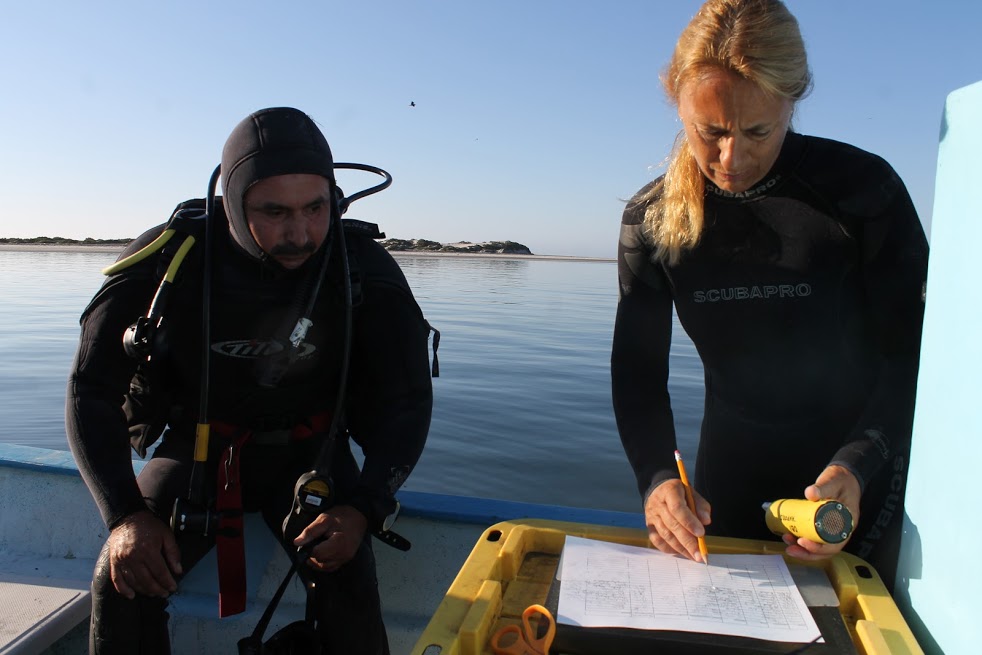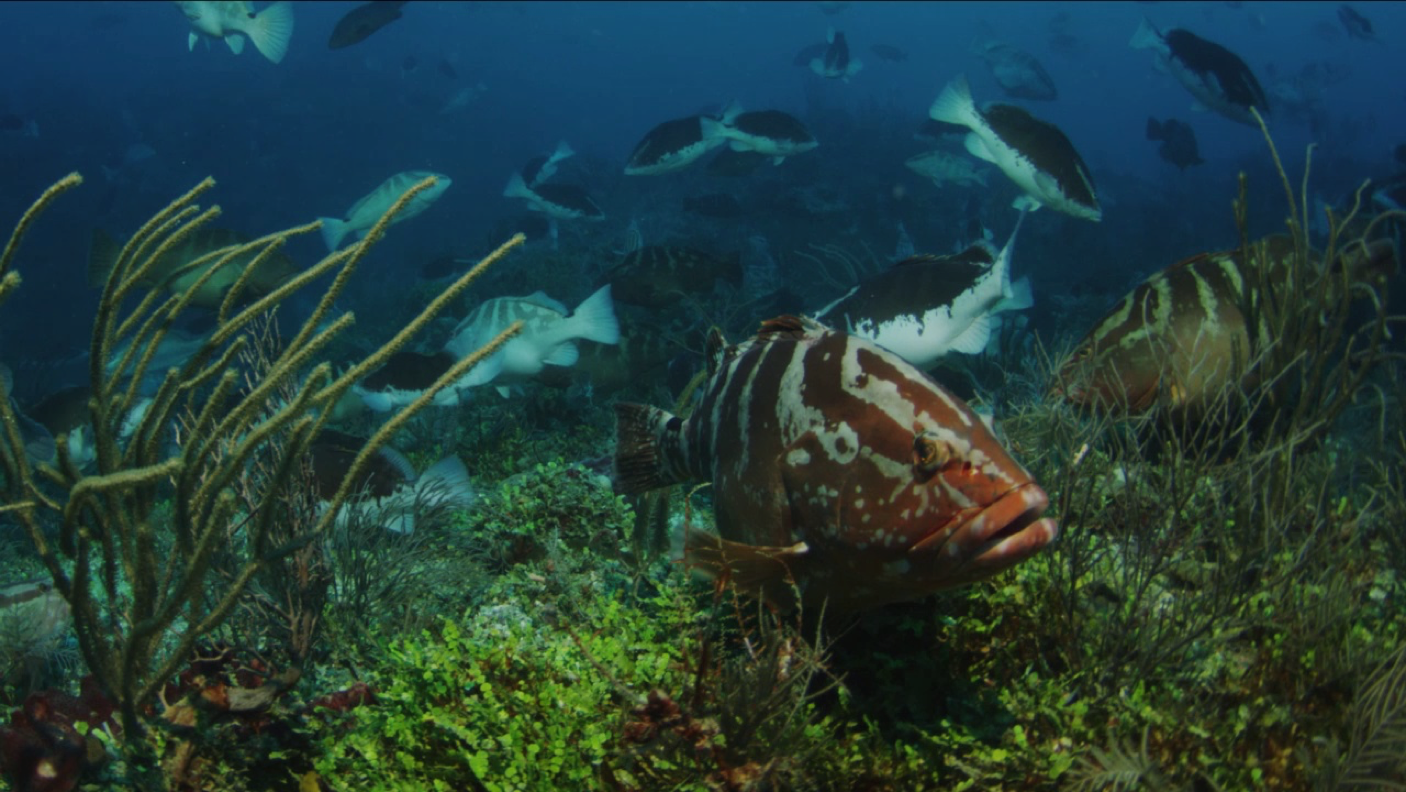


In collaboration with fishers and key local stakeholders, we design, implement, and monitor marine reserves to foster the recovery of fisheries and marine ecosystems, both within and beyond the reserves. This building block has three branches:
1. Design. We have workshops with resource-users to present the marine reserves theory and to design the map of uses and ecosystems. We then conduct acceptance and cost analyses. We define the objectives of the reserves, select the best sites to meet these objectives, and finally define operation procedures, financial sustainability plans, and formal agreements with the cooperatives.
2. Monitoring and evaluation. We select indicators and monitoring methodologies to collect the data. Then, we train the community in the monitoring techniques so they can collect data, evaluate progress, and engage in the process.
3. Management. We support our community partners in all the paper work to make the reserve official, as well as to elaborate and refine operational plans for the success and adaptive management of the reserve.
We have 79,500 marine hectares protected, more than 300 species monitored, and 100 Mexican fishers (including 18 women) trained in submarine and oceanographic monitoring techniques.
1. Traditional knowledge.
2. Well-organized cooperatives that have pride for investing in marine conservation.
3. Divers that are interested in learning about monitoring techniques.
4. Governemnt officials that are keen to support restoration efforts.
The rights to fish should come with fisheries and ecosystem restoration duties. No-take areas have demonstrated to be a key instrument for the fishery and ecosystem recovery. They also can be design and implemented in poor information sites, where traditional knowledge is available. Marine reserve evaluation and monitoring is key to ensure effectiveness. Fishers have proved to be great at collecting data in poor information sites as well as identifying key sites for protection. Training and involving fishers in data collection helps not only to have a better understanding of ecosystem, but also to create pride and project ownership in the community.